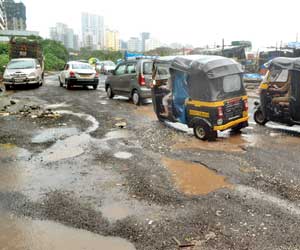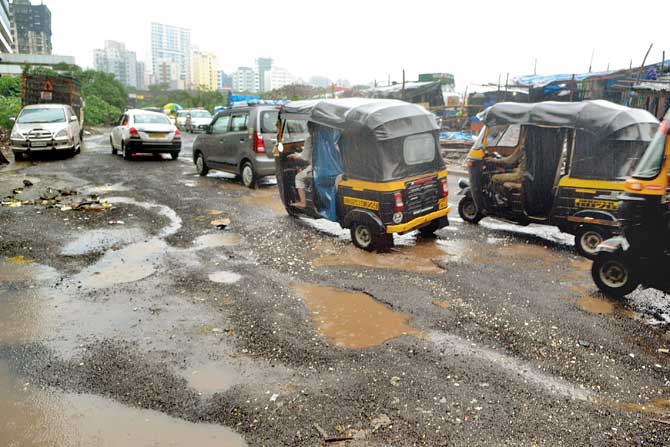An internal exam by the Railways throws up a worrying question: Are people supposedly managing public services qualified to do so?

 Here's a little piece of information that failed to make much of a splash among the weekly horrors of corruption, crime and incompetence that usually populate the pages of our newspapers. Apparently, the Railways recently held an internal examination for employees in order to help some of them secure a promotion. There were 20 candidates, all of whom were asked to answer a few basic questions for 150 marks. According to officials, the questions were based on the day-to- day working of the railways, which meant the answers ought to have been fairly easy for those candidates. And yet, all 20 failed. Two candidates were eventually selected for interviews under a reservation scheme helpfully titled 'best among failed candidates.' By the time that announcement was made, one candidate had retired, leaving just one with the possibility of eventually being promoted.
Here's a little piece of information that failed to make much of a splash among the weekly horrors of corruption, crime and incompetence that usually populate the pages of our newspapers. Apparently, the Railways recently held an internal examination for employees in order to help some of them secure a promotion. There were 20 candidates, all of whom were asked to answer a few basic questions for 150 marks. According to officials, the questions were based on the day-to- day working of the railways, which meant the answers ought to have been fairly easy for those candidates. And yet, all 20 failed. Two candidates were eventually selected for interviews under a reservation scheme helpfully titled 'best among failed candidates.' By the time that announcement was made, one candidate had retired, leaving just one with the possibility of eventually being promoted.
ADVERTISEMENT

A few months ago, an internal inquiry by the BMC nailed 281 engineers who were supposedly responsible for ensuring good roads. I wasn't surprised
Let's put aside the worrying fact that a scheme called 'Best Among Failed Candidates' exists, even if it is for what Railway officials say is a non-safety category. Let's also try and forget the fact that an organisation employing thousands of people in our city alone struggles to find qualified candidates from among its own experienced employees. The report went on to state that eight candidates had declined to participate in the test process, while the ones who did take the examination didn't even score 90 marks, which was the minimum number required to pass.
It's interesting to try and figure out how the good people employed by our many government organisations are promoted. Is it just seniority? Are there checks and balances in place to weed out non-performers from those genuinely capable of doing what they are paid to do? Does the BMC, for instance, gauge its employees on the basis of anything other than the number of years they put in? Are human resource personnel ever allowed to evaluate the qualifications of the men and women responsible for everything from healthcare to the state of our roads? And will these organisations ever come clean about how they go about recruiting for these positions in the first place?
In 2013, the BMC held an online entrance exam for engineers applying for 400 vacancies. They were to be evaluated on mental ability, technical and general knowledge. Of approximately 13,000 applicants who sat for the test, only 22 passed. The worrying thing was the pass percentage, which was initially 50, then reportedly lowered to 35 because few candidates could clear that level. Until that point, the BMC had recruited engineers based on qualifications and walk-in interviews alone.
In 2014, the BMC issued a circular to its engineers, asking them to prove their worth for promotions by clearing a compulsory internal examination. Unsurprisingly, the engineers opposed the exam, saying that no other government organisation held exams for promotions. One of them reportedly told the media that employees were promoted easily in the past, and wondered how his seniors wanted them to work "with such low motivation." I couldn't find any further reports on this examination, so I have no idea if it was eventually held at all.
Here's a question I often ask myself: Who are the people hired by the BMC for posts in its education department? How are they selected? How do they get promoted? Who checks their credentials and on what basis are they given budgets and permission to handle the education policies for our city? I haven't been able to find an answer. And yet, an answer is important because anyone with half a brain can tell that the department is doing a shoddy job. Everything from how badly the Right to Education has been implemented to a number of bizarre initiatives adopted for public schools can be traced to its doorstep, which is why the credentials of people managing it ought to be questioned. Then again, we live in a country where someone with dubious degrees can, with the right support, become the Education Minister for our entire country, so this lack of information ought to be expected.
We accept everything our government agencies give us without question. We don't have a clue about the people who come up with harebrained schemes to make our lives simpler, and we don't have a mechanism that allows us to vet the qualifications of people hired for jobs that impact millions of lives on a daily basis. A few months ago, an internal inquiry by the BMC nailed 281 engineers who were supposedly responsible for ensuring good roads. I wasn't surprised.
When he isn't ranting about all things Mumbai, Lindsay Pereira can be almost sweet. He tweets @lindsaypereira. Send your feedback to mailbag@mid-day.com
 Subscribe today by clicking the link and stay updated with the latest news!" Click here!
Subscribe today by clicking the link and stay updated with the latest news!" Click here!






